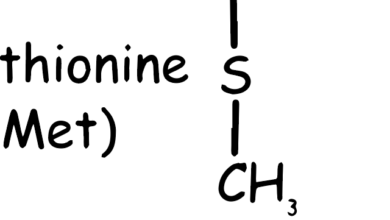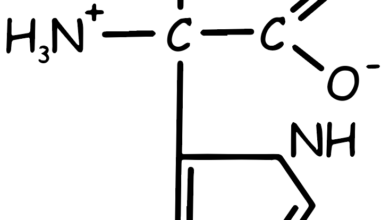
Senescent cells are cells that have stopped dividing and entered a state of irreversible cell cycle arrest, but remain metabolically active. They can be caused by a variety of stresses, including telomere shortening, DNA damage, oxidative stress, and oncogene activation. Senescence is a normal cellular process that serves as a mechanism to prevent the proliferation of damaged or abnormal cells, including cancer cells.
Senescent cells are characterized by changes in their morphology, gene expression, and secretory phenotype. They often exhibit enlarged and flattened cell shapes, and express a set of senescence-associated markers, including the tumor suppressor protein p16INK4a and the senescence-associated beta-galactosidase enzyme (SA-beta-gal).
Senescent cells can have both beneficial and detrimental effects. On one hand, they can contribute to tissue repair and regeneration by secreting growth factors and extracellular matrix components. On the other hand, their accumulation in tissues over time can lead to chronic inflammation, tissue dysfunction, and age-related diseases.
Recent research has focused on developing strategies to selectively eliminate senescent cells as a potential therapeutic intervention to treat age-related diseases. These strategies include the use of senolytic drugs, which selectively induce apoptosis in senescent cells, and the use of senescence-associated immune cells, such as natural killer cells and macrophages, to clear senescent cells from tissues.
Eliminating the Senescent Cells
Eliminating senescent cells is an active area of research as it is believed that the accumulation of these cells in tissues over time can contribute to age-related diseases. Strategies for eliminating senescent cells include the use of senolytic drugs, which selectively induce apoptosis in senescent cells, and the use of senescence-associated immune cells, such as natural killer cells and macrophages, to clear senescent cells from tissues.
Senolytic drugs selectively target senescent cells by inducing apoptosis, or programmed cell death, in these cells. There are several classes of senolytic drugs, including inhibitors of the BCL-2 family of anti-apoptotic proteins, such as ABT-263 and ABT-737, and inhibitors of the senescence-associated secretory phenotype (SASP), such as quercetin and fisetin. These drugs have shown promise in preclinical studies in mice, where they have been shown to improve age-related phenotypes and extend healthspan.
Another strategy for eliminating senescent cells is the use of senescence-associated immune cells, such as natural killer cells and macrophages. These immune cells are capable of recognizing and clearing senescent cells from tissues, and there is evidence to suggest that their function may decline with age, leading to the accumulation of senescent cells. Boosting the function of these immune cells or introducing exogenous immune cells may be a potential therapeutic approach for eliminating senescent cells.
In summary, eliminating senescent cells is an active area of research as it is believed that the accumulation of these cells in tissues over time can contribute to age-related diseases. Strategies for eliminating senescent cells include the use of senolytic drugs and the use of senescence-associated immune cells, such as natural killer cells and macrophages.
Quercetin
Quercetin is a flavonoid, a type of plant pigment found in many fruits, vegetables, and grains. It is a natural antioxidant and has been studied for its potential health benefits, including anti-inflammatory, antiviral, and anticancer properties. Quercetin has also been studied for its potential as a senolytic agent, meaning that it can selectively induce apoptosis, or programmed cell death, in senescent cells.
In preclinical studies, quercetin has been shown to reduce the number of senescent cells in tissues and improve age-related phenotypes in mice. It has also been shown to improve the function of aging stem cells and delay the onset of age-related diseases. However, the efficacy and safety of quercetin as a senolytic agent in humans is still being studied.
Quercetin is available as a dietary supplement and is found in many foods, including onions, apples, berries, grapes, citrus fruits, and green tea. It is generally considered safe when consumed in food amounts, but high doses of quercetin supplements may cause side effects such as headache, nausea, and kidney damage in some individuals. It is important to consult with a healthcare provider before taking quercetin supplements, especially if you have any medical conditions or take medication.
In addition to its potential as a senolytic agent, quercetin has been studied for its various health benefits. Some of the potential health benefits of quercetin include:
- Anti-inflammatory effects: Quercetin has been shown to reduce inflammation in the body by inhibiting the production of inflammatory cytokines.
- Antioxidant effects: Quercetin has antioxidant properties, meaning it can neutralize harmful free radicals in the body that can damage cells and contribute to the development of chronic diseases.
- Immune system support: Quercetin has been shown to support the immune system by enhancing the function of immune cells and reducing inflammation.
- Potential anticancer effects: Some studies have suggested that quercetin may have anticancer properties by inhibiting the growth and spread of cancer cells.
- Cardiovascular health: Quercetin has been shown to improve blood vessel function and reduce blood pressure, which may help reduce the risk of cardiovascular disease.
- Neuroprotection: Quercetin may have neuroprotective effects and may help reduce the risk of neurodegenerative diseases such as Alzheimer’s disease.
While quercetin is generally considered safe when consumed in food amounts, high doses of quercetin supplements may cause side effects such as headache, nausea, and kidney damage in some individuals. It is important to consult with a healthcare provider before taking quercetin supplements, especially if you have any medical conditions or take medication.



